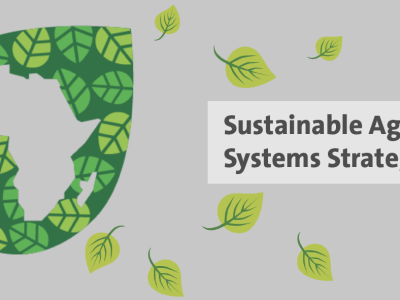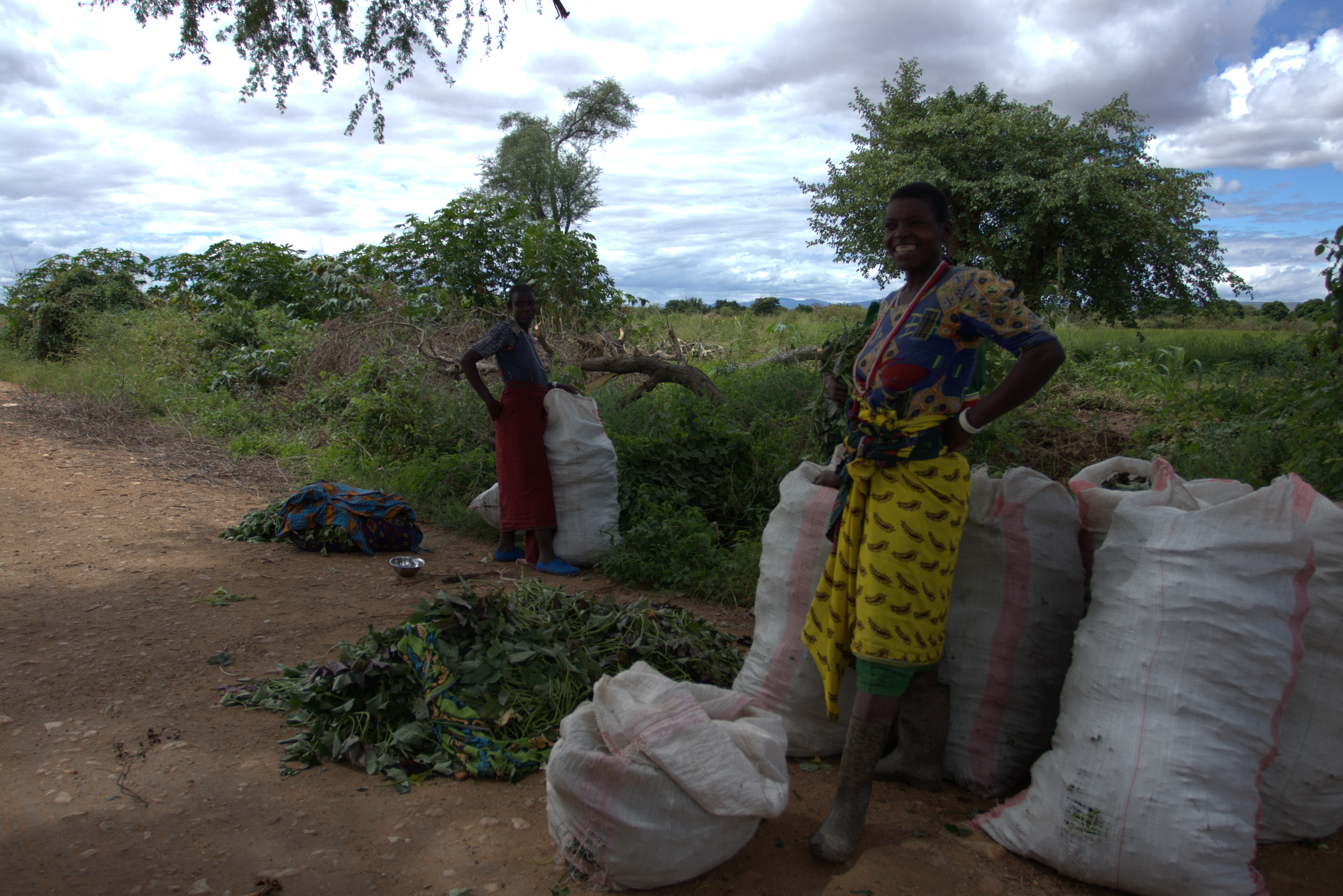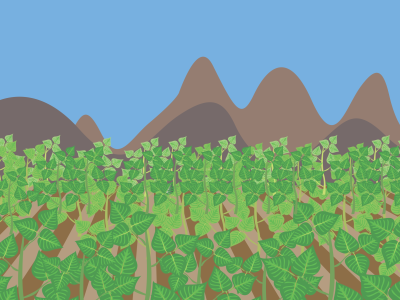
Sustainable food systems – Volume 6, Issue 4 (September/October 2017)
The 2030 Agenda for Sustainable Development puts sustainability at the heart of a wide range of human activities. Agriculture, and more broadly activities in our current food systems, are no exception. This issue of Great Insights magazine explores how we can achieve greater sustainability and inclusiveness.
Read the articles online
Towards more sustainable food systems – Editorial
Dr. San Bilal, Carmen Torres, and Ewald Wermuth, ECDPM
The UN 2030 Agenda for sustainable development, as a universal agenda, provides a valuable framework to put sustainability at the heart of a wide range of human activities. Agriculture, and more broadly food system activities, are no exception.
Features
Investing in agricultural transformation to achieve sustainable food systems
H.E. Josefa Sacko, African Union Commissioner
GREAT Insights interviewed H.E. Mrs. Josefa Sacko in July about the critical challenges and tremendous opportunities African agriculture faces, linking development to nutrition, food security and broader climate issues.
Minister Martina and Italy’s experience in green farming policies
Maurizio Martina, Italian Minister of Agriculture, Food and Forestry Policies
A ‘sustainable food system’ is understood as a system in which all activities are sustainable from an environmental, economic and social point of view. In this interview with Maurizio Martina, the Italian Minister of Agriculture, we discuss the major trends affecting food systems, most notably climate change and limited resources availability, challenges arising from growing urban and informal markets, the current double burden of malnutrition, and the power concentration within groups of big retailers and supermarkets.
A panoply of policy instruments to promote sustainable food systems in West Africa
Alain Sy Traoré, ECOWAS
ECOWAS is seeking to use its new agricultural policy, ECOWAP 2015-2025, and various other policy tools, to promote agricultural development, food and nutrition security and the sustainability of food systems in West Africa
Sustainable food systems matter
Challenges and perspectives for supporting sustainable and inclusive food systems
Louise O. Fresco, Ruerd Ruben and Marion Herens, Wageningen University & Research
Food systems in low and middle income countries are experiencing a radical transition in response to socio-economic and demographic changes. Rising incomes, rapid urbanisation and growing middle classes lead to strong adjustment in dietary preferences and consumer behaviour and require public and private investments for improved food market integration.
Diversification for sustainable food systems and the role of ECDPM
Francesco Rampa and Carmen Torres, ECDPM
Delivering food and nutrition security to all is undoubtedly an essential goal of our food systems. Their environmental and socioeconomic outcomes are equally important, in particular in the context of the Sustainable Development Goals (SDGs) and the Paris Climate Agreement. Today, however, our food systems are unsustainable.
Nutrition(al) improvements
Why are sustainable food systems paramount to the World Health Organization’s nutrition mission?
Dr Francesco Branca, Harrison Phelps and Lina Mahy, World Health Organization
For the first time, the WHO recognises sustainable food systems as paramount to population health with its “Ambition and Action in Nutrition 2016-2025”.
Bring NUS back to the table!
Stefano Padulosi, Bioversity International
NUS, or Neglected and Underutilised Species, are wild, cultivated or semi-domesticated non-commodity crops at the margin of mainstream agriculture. Their contribution to tackling food and nutrition insecurity and climate change vulnerability is huge and can no longer be overlooked. They might not be ‘neglected’ for much longer.
Policy coherence across the food system for nutrition: From challenge to opportunity?
Corinna Hawkes, Centre for Food Policy, City, University of London
Policy coherence occurs when policy actions across sectors and stakeholders are actively aligned towards meeting agreed objectives. Policies that affect the food system are currently not aligned towards improved nutrition outcomes. Yet there are opportunities for greater coherence. Identifying priorities for action will require careful analysis.
Market perspectives
Virtuous emulsification of business and nutrition
Lawrence Haddad, Global Alliance for Improved Nutrition
Businesses are already shaping food supply and demand. The question is: how can they shape these dimensions for better nutrition? Not enough of us are posing this question, let alone answering it.
What role for informal markets in achieving sustainable and inclusive food systems?
Bill Vorley, International Institute for Environment and Development
The informal economy is the main route for food to reach consumers in much of the global South. Its dominance and dynamism challenges our understanding of what constitutes a sustainable and inclusive food system.
Voluntary standards and institutional innovations – the right path to sustainable and inclusive food systems?
Allison Loconto, Anne-Sophie Poisot and Pilar Santacolomba, Food and Agriculture Organization
Enabling consumers to identify products as being produced sustainably is fundamental to incentivising farmers to market their products in this way. In this short article, we reflect upon what we know about efforts to link sustainable production with responsible consumption both within global value chains and within domestic markets in developing countries.
How can a bank’s financial services and networks contribute to the sustainability of food systems?
Maarten Biermans, Alain Cracau, Jeske van Seters, Paulina Bizzotto Molina, Sustainable Business Development at Rabobank and ECDPM
Finance can play a role in moving towards more sustainable food systems. ECDPM’s Paulina Bizzotto Molina and Jeske van Seters explore this topic with Maarten Biermans and Alain Cracau of Rabobank, an agricultural cooperative bank founded nearly 120 years ago in the Netherlands.
Cases of implementation
I couldn’t believe that in Africa we export what we produce, and import what we eat!
Marie Diongoye Konaté, Protein “Kissèe-La”
The objective of Marie Diongoye Konate’s company, Protein “Kissèe–La”, is to transform local grains into a high nutritional value product for adults and children, thus improving nutrition, adding value to local products and creating local jobs. “I knew from the beginning that it would be hard work,” she says in this interview with ECDPM guest editor Carmen Torres. “But I also knew people would eventually recognise the quality and the value of the product.” And they did.
Food challenges and opportunities in Nairobi
Diana Lee-Smith, Mazingira Institute
GREAT Insights interviews Dr. Diana Lee-Smith, co-founder of the Kenya NGO Mazingira Institute, Nairobi, Kenya, about the food challenges Nairobi faces.
The right evidence to guide integrated investments for food security in Laikipia County, Kenya
Louise E. Buck, Constance L. Neely and Louis Wertz, EcoAgriculture Partners and World Agroforestry Centre
Mapping food flows, coupled with ecological, social, and spatial data, helped create a “dashboard” that will strengthen the impact of the next five-year county integrated development plan.
Read the full magazine issue





